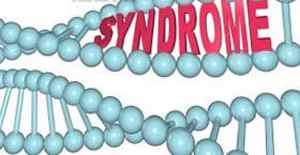

MedFriendly®


Syndrome
occur together and have a common cause,
representing a certain disease or inherited abnormality.
A sign is often clear evidence of disease that can be
observed such as a fever, swelling, or a rash. A
symptom is an indication of a disease or a change in
condition that is reported by someone (e.g., pain) but is
not observed by others.
FEATURED BOOK: Professional Guide to Signs and Symptoms
When one sign or symptom is present, a healthcare provider can inquire further to elicit
other signs and symptoms that may indicate the presence of a particular syndrome.
Symptoms and signs often occur together with signs. Certain signs (e.g., crying) can
indicate the presence of a symptom (e.g., depression).
Syndromes typically have a wide range of possible causes. For example, an upper motor
neuron syndrome refers to signs and symptoms of upper motor neuron damage such as
decreased motor control (e.g., fine motor incoordination), muscle weakness, and
increased reflexes that can be caused by different types of brain or spinal cord damage.
Upper motor neurons are nerve cells in the brain that help control motor functioning.
Syndrome comes from the Greek word "syn" meaning "together," and the Greek word
"dromos" meaning "course." Put the two words together and you get "course together."
"Where Medical Information is Easy to Understand"™















